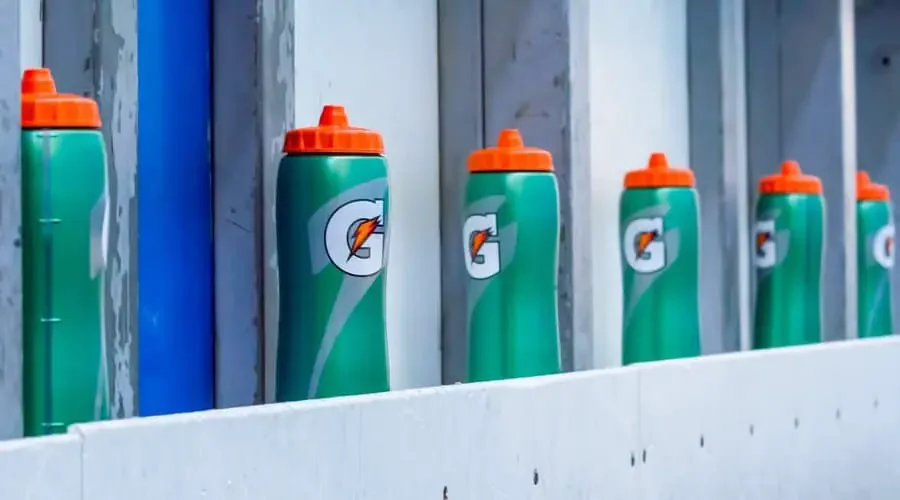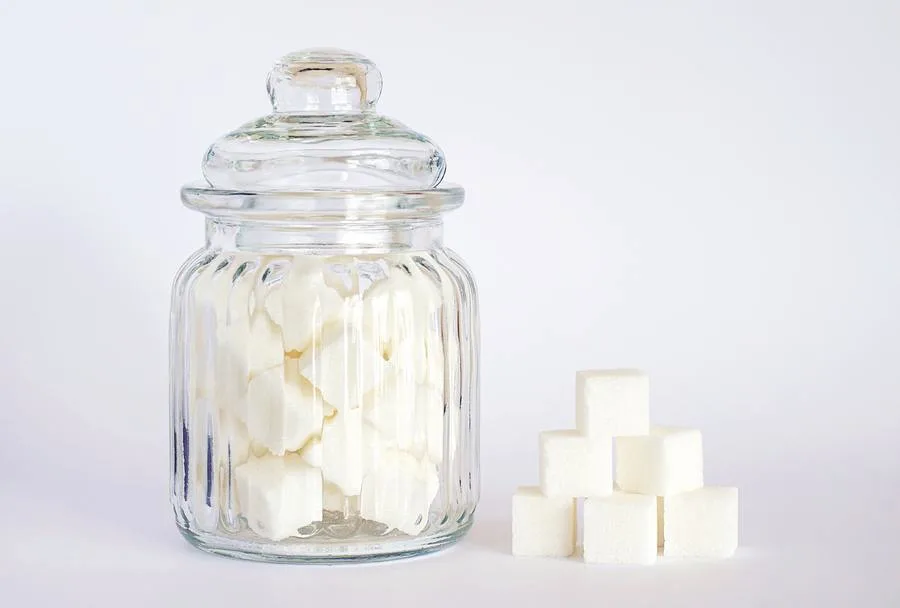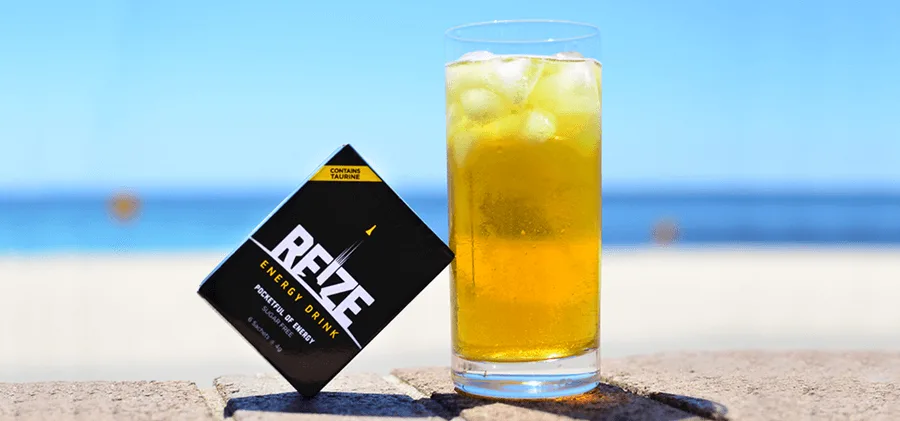If you aren’t an avid consumer of energy drinks or sports drinks, it may be easy for you to get them both mixed up. The reason why they’re so hard to differentiate is that they have some similar characteristics.
Due to that, you might be wondering which has the edge over the other.
The answer to this would be that it depends on your purpose for drinking one, where energy drinks would serve as a great energy booster, while sports drinks would be great for hydrating yourself after a workout.
Undeniably, energy drinks and sports drinks share a lot of similarities, however, it’s the minor differences that make them both stand out in their own way.
Interested to have a more detailed comparison between the two?
Read on…
Energy Drinks
As suggested by the name, energy drinks are commonly known as a drink that gives you an instant boost of energy to help you push through your tasks with increased alertness and focus.
What is most notable about energy drinks is their ingredients, which often comprise mainly caffeine, B vitamins and sugar, and occasionally some additional ingredients such as taurine and ginseng extract.
Another uniqueness of energy drinks is how much variety is available, many serving a specific purpose such as to be a workout drink or even as a drink for helping students who need to burn the midnight oil.
So you will definitely be able to find the “right” energy drink for your task.
Sports Drinks

Simply put, sports drinks are drinks that are used to rehydrate your body after exercise, where there are three types available: isotonic, hypertonic, and hypotonic.
The three types differ in their amount of salt and sugar, where hypotonic sports drinks contain the least amount followed by isotonic, and finally, hypertonic sports drinks with the most.
Having a different composition, each type of sports drink serves a slightly different purpose as well, which is as follows:
- Isotonic drinks contain an equal amount of salt and sugar to those in your body and work to replace fluids lost during exercise with the help of carbohydrates.
- Hypertonic drinks are made to supplement your body’s daily carbohydrate intake and replace your glycogen level after exercise.
- Hypotonic drinks have a higher concentration of salt and sugar than the human body which allows fluid to be quickly replaced in your body.
So from what you can see, sports drinks are generally made to be post-workout drinks that help you replenish your lost fluids or glycogen.
Where can you get them?
You can get both energy drinks and sports drinks almost anywhere. Chances are, you might’ve already sighted them at your local Walmart, Target or other stores.
But if you don’t feel like stepping out of the comforts of your home to grab a drink, you will be pleased to know that most energy drinks and sports drinks are now also available online.
Hence both sports drinks and energy drinks are on equal grounds in terms of availability, so you don’t have to worry about either drink being difficult to buy.
Energy Drinks vs Sports Drinks
Before we get started, here’s a short video detailing the difference between energy drinks and sports drinks:
As mentioned above, one of the biggest differences between energy drinks and sports drinks is in their purpose—energy drinks meant to energize whereas sports drinks are meant to offer replenishment after exercise.
The reason behind this difference can be attributed to the different ingredients they contain. Sports drinks have electrolytes and minerals while energy drinks mostly contain stimulants.
However, this doesn’t mean that you cannot drink energy drinks as a thirst quencher.
It just means that it is not advised to drink energy drinks frequently like you drink water because of the stimulants, which I will explain more in detail below.
Ingredients
Caffeine
Caffeine is a stimulant that can be found in most, if not all energy drinks and can span from as low as around 50mg to a staggering 300mg of caffeine depending on the brand.
Therefore, when choosing an energy drink for yourself, knowing your tolerance is key. If you have a low caffeine tolerance like myself, energy drinks like REIZE with only 50mg of caffeine might be ideal rather than going for something really strong that might knock your socks off.
On the other hand, if you have a high caffeine tolerance and really need that boost, then something like Bang, which contains 300mg of caffeine might work well for you.
With that said, the FDA suggests a maximum caffeine consumption limit of 400mg per day, so I would advise you to choose an energy drink with a caffeine content that is well below that limit.
If you’re new to caffeine, you might be wondering what’s so great about it. Caffeine comes with a whole host of benefits such as:
- increases alertness
- reduce fatigue
- improves performance
- improves mental functioning
A study showed that sports drinks can sometimes contain caffeine, though the exact amount isn’t always clear.
However, in my experience, very few sports drinks contain caffeine. Even one of the most well-known sports drinks, Gatorade, has stated on their website that the drink doesn’t contain any caffeine.
So if you have a low caffeine tolerance, you can try a sports drink. On the other hand, if you’re not and you need more focus and alertness, I’d recommend you go for an energy drink.
Sugar

While the sugar content may vary between energy drinks and sports drinks, the sugar levels of both drinks can get pretty high depending on the brand.
An average Monster Energy drink can actually go up to 54g of sugar per 16 fl. oz can which is on the higher spectrum of sugar content even amongst energy drinks.
Comparatively, a Gatorade can match that pretty closely, having 36g of sugar per 20 fl. oz.
Regardless of which you drink, it’ll be important to make sure you know how much sugar is too much so that you don’t exceed the recommended daily sugar intake.
The AHA has guidelines on how much sugar should be consumed each day by both men and women, which as shown:
| Sex | Maximum daily intake |
| Men | 150kcal / 37.5g / 9 tsp |
| Women | 100kcal / 25g / 6 tsp |
I know we all enjoy some sweetness in our lives, but too much sugar will increase the probability of you getting health complications such as:
- weight gain
- increased risk of heart disease
- acne
- increased risk of Type 2 diabetes
- increased risk of cancer
- increased risk of depression
On the bright side, both types of drinks also have sugar-free alternatives which can be better if you have sugar problems such as diabetes.
If you’re interested, you can refer to an article I’ve written on the best energy drinks for diabetics if you suffer from it yourself.
Safety
Between the two, sports drinks are safer for children and adolescents while energy drinks are not advised for children at all.
In fact, sports drinks are often encouraged for high-intensity exercise in children and adolescents.
Energy drinks are more commonly consumed by adults and it’s a good thing because the amount of caffeine in the energy drink could potentially cause health problems in children and adolescents.
Benefits
As briefly mentioned above, there are energy drinks that are tailored to help you in specific scenarios. This includes in your workplace, when you’re exercising, or even for students who are cramming late at night.
On the other hand, for sports drinks, research shows that adults do benefit a lot from sports drinks as well, helping in the replenishment of electrolytes and fluid in your body.
Side Effects of Both Drinks
Though both energy drinks and sports drinks can bring amazing benefits to you if drink them in moderation, there are a number of negative side effects that you may experience if you’re not careful in moderating your consumption.
These can range from small side effects to even life-threatening ones.
However, while there are a few similarities there are also some pretty big differences in how they affect the body due to the ingredients within them, especially with how energy drinks contain more caffeine.
For energy drinks, some side effects include:
- weight gain
- insomnia
- nervousness
- chest pains
- diabetes
For more effects as well as how to prevent them you can check out my article on the effects of energy drinks on your body.
Sports drinks on the other hand are another story. While you can drink slightly more of them than you would an energy drink I still wouldn’t suggest drinking too much.
Some negative effects of drinking too many sports drinks are:
- corrosion of teeth
- diabetes
- weight gain
- obesity
But remember these only happen if you drink too much of either drink. So if you regulate your consumption based on the FDA’s guidelines for caffeine and the AHA’s guideline for sugar, you should be alright.
Which is Better?
From the above proof, I would say that the final answer is clear… both are equally great.
Both have their uses and while I wouldn’t encourage drinking both together because of the high sugar you’d be consuming, they both do well individually.
Ultimately, it kind of depends on what you’re looking for in a drink and your preference.
Final Conclusion
I prefer energy drinks over sports drinks because while rehydrating myself is nice after a long exercise session, I find that more often, a boost of energy is what I need to get through the day.
And I can always rehydrate myself with plain water which I feel is more refreshing than a sports drink.
Plus with some powdered energy drinks, which come in convenient sachets that you can mix with water to make a drink, I find they offer a quick and easy replenishment after a workout.
If you’re not that into the added minerals and electrolytes in sports drinks, I would suggest that you can just drink your bottle of water for hydration, and then mix it with an energy drink afterwards for some extra energy.
Alternatives
There are many alternatives to both energy drinks and sports drinks, these include:
- Green Tea
- Smoothies
- Water
Green Tea
Green Tea contains a lot of antioxidants and minerals that are good for your diet and health. Not to mention they also contain a bit of caffeine which can help with alertness.
Green Tea is also a cheap alternative, which you can easily make. All it takes to make green tea is just teabag, water, and a little bit of patience to wait for the tea leaves to infuse.
Smoothies
Smoothies are also great for increasing your energy when you’re feeling sleepy. This is because smoothies offer great fibre, carbohydrates, and even healthy fats depending on what your ingredients are.
Not to mention that because they’re cold, they would wake you up even if the ingredients don’t!
Some of my favourite smoothies are made from whatever fruits I can find in my fridge with a teaspoon of protein powder.
Water
Especially when you’re working out, you’ll definitely need water to sustain yourself and rehydrate.
On top of that, as water doesn’t contain any added ingredients, it actually rehydrates you better than any sports drink will.
However, if you’re not a fan of how bland water is, I would recommend adding fruit slices to it. Personally, I love a lemon slice in my bottle of water as it gives my water an added zest.
REIZE Energy Drink (10 out of 10)

If you’re looking for a delicious thirst-quenching drink that comes with a boost of energy and alertness, why not try REIZE energy drink?
Containing a sensible 50mg of caffeine on top of being sugar-free, you won’t have to worry too much about exceeding the daily recommended intake of sugar or caffeine with REIZE.
REIZE comes in a convenient sachet form, which allows you to enjoy it anytime and anywhere whenever you need a fresh energy boost.
With a smart blend of B vitamins, taurine and ginseng to go with the moderate amount of caffeine, REIZE will give you the perfect energy boost, without the crash afterwards.
The price is also super affordable, it only amounts to about $1 per drink including shipping right to your door, which is great value for money!
If you want the benefits of an energy drink but don’t feel like drinking so much sugar and caffeine then try REIZE today. I’m sure you’ll agree with me that REIZE really is the smartest option when it comes to energy drinks.

